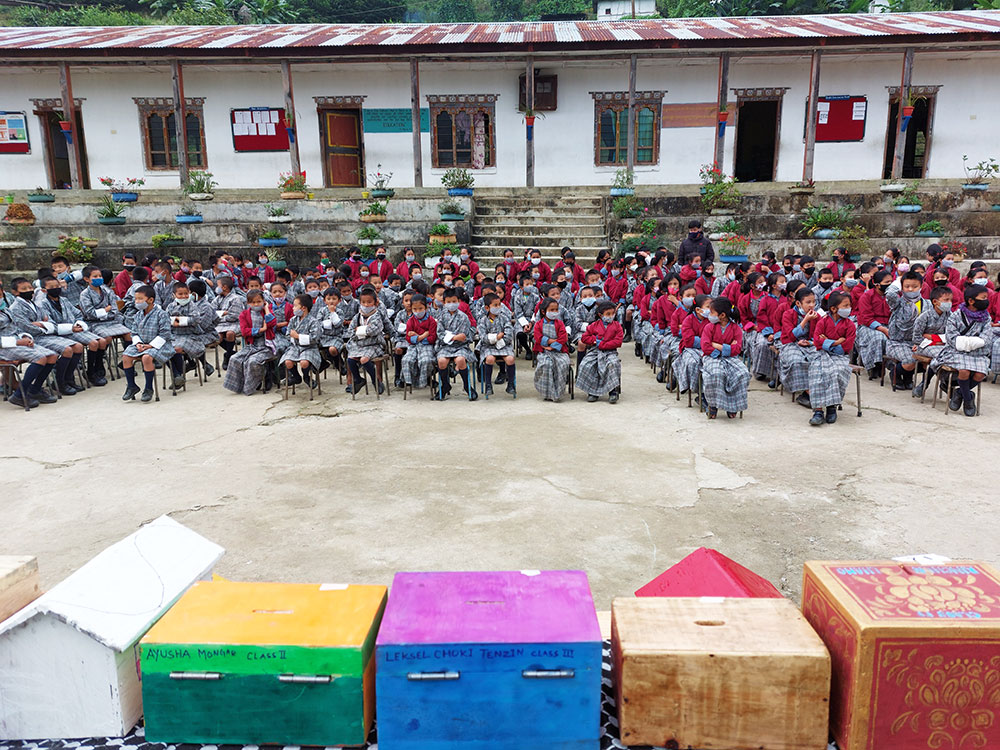Choki Wangmo | Tsirang
Except for occasions like her birthday, during which she would receive a bit extra, Tirtha Kumari Tiwari, 18, was unable to save even a penny from her monthly pocket money of about Nu 3,000. However, the student of Damphu Central School said she will now save some of her pocket money.
Forty students from the school, including Tirtha Kumari, recently attended a three-day financial literacy-training programme in Tsirang, which ended on October 22.
She said that her parents saved money in small amounts in a kantur (piggybank) during her childhood. “I was told to save a portion of my pocket money as a child but I could never do that. It becomes more difficult to save money as we grow up.”
Having attended the training, she feels that she is now financially literate.
“Children should spend reasonably so that some of the money is saved for the future,” she said.
Like Tirtha Kumari, many Bhutanese lack financial literacy and have not cultivated the habit of saving, according to observers. However, the trend could be changing, especially among young people.
In Rangthangling Primary School in Tsirang, where Bhutan observed its first Savings Day last year, children have started saving in small amounts.
A teacher said that some of the students who took up part-time jobs as carpenters and labourers during vacations saved their wages.
As part of the World Savings Month, which concludes on October 31, the Project for Rural Development Bhutan (PRuDent) is conducting “savings game training” for more than 600 students in Wangdue, Punakha, Dagana, Tsirang, Mongar, Trongsa, Zhemgang, and Trashigang.
One of the seven trainers with the project, Sonam Choki, said the students are being trained on how to manage family budgets to achieve the highest quality of life, taking the family’s choices and the economic strength of the household into consideration.
“With the help of ‘event cards’, we create various situations and let the students use their analytical skills to solve them. We also introduce them to resources and concepts such as financial institutions, loans, and inflation,” she said.
She said that Bhutanese have poor saving habits. According to her, the financial literacy gap is bigger in the east compared to other parts of the country.
The game developed by German Sparkassenstiftung for international cooperation (DSIK) is implemented in collaboration with the Ministry of Agriculture and Forests and RENEW-Microfinance.
Through the “farmers business game”, the PRuDent team has trained more than 500 farmers, Desuups, and RENEW-Microfinance clients.
On October 22, the team conducted a piggybank competition among 37 students from Classes PP to III in Rangthangling Primary School to teach children the value of savings.
The twenty best piggybanks were selected, from which the top three won prizes.
The first World Savings Day took place on October 31 in 1924.
Edited by Tshering Palden


